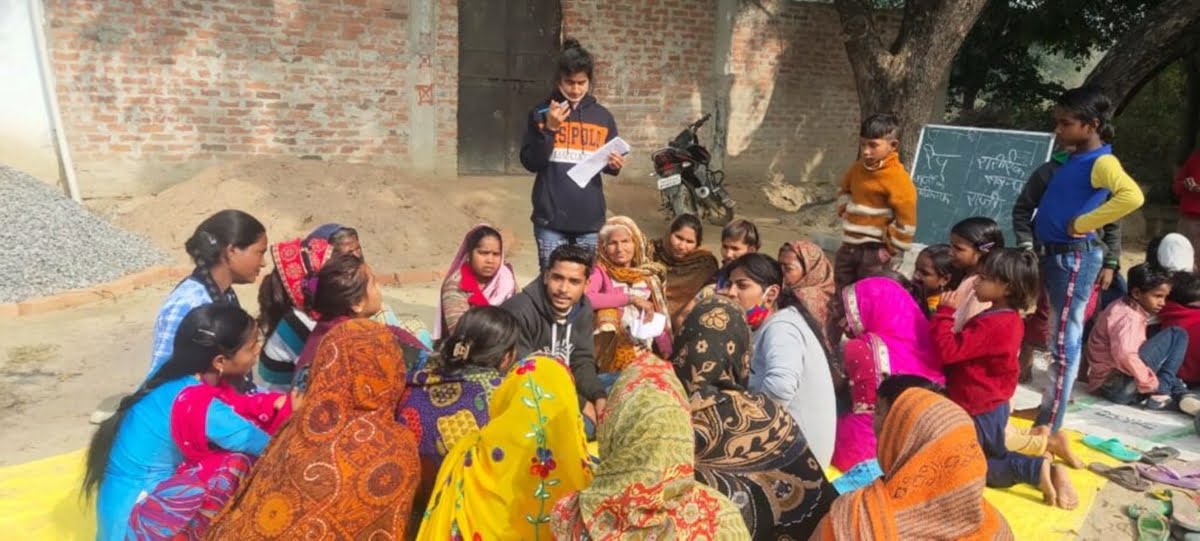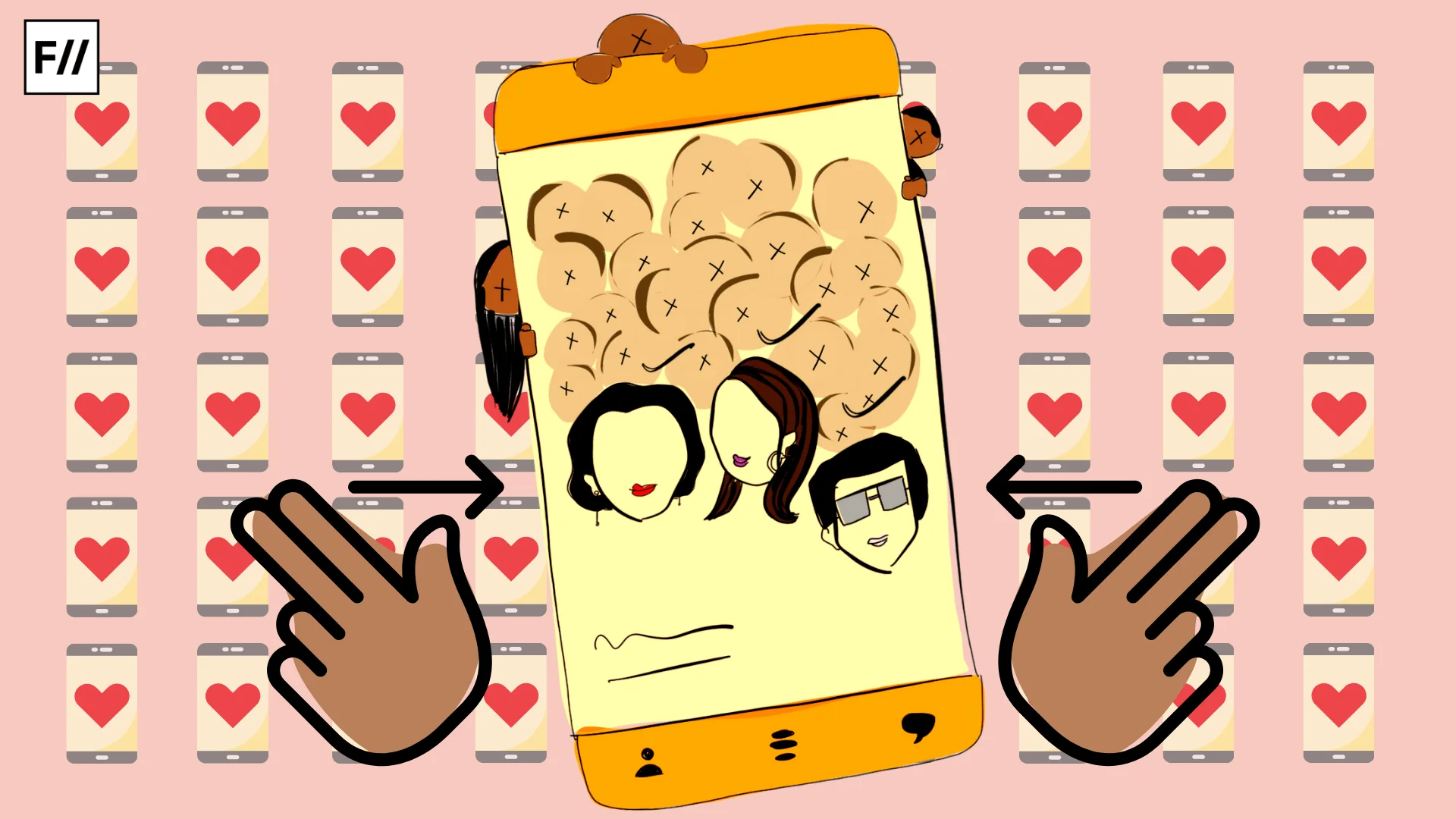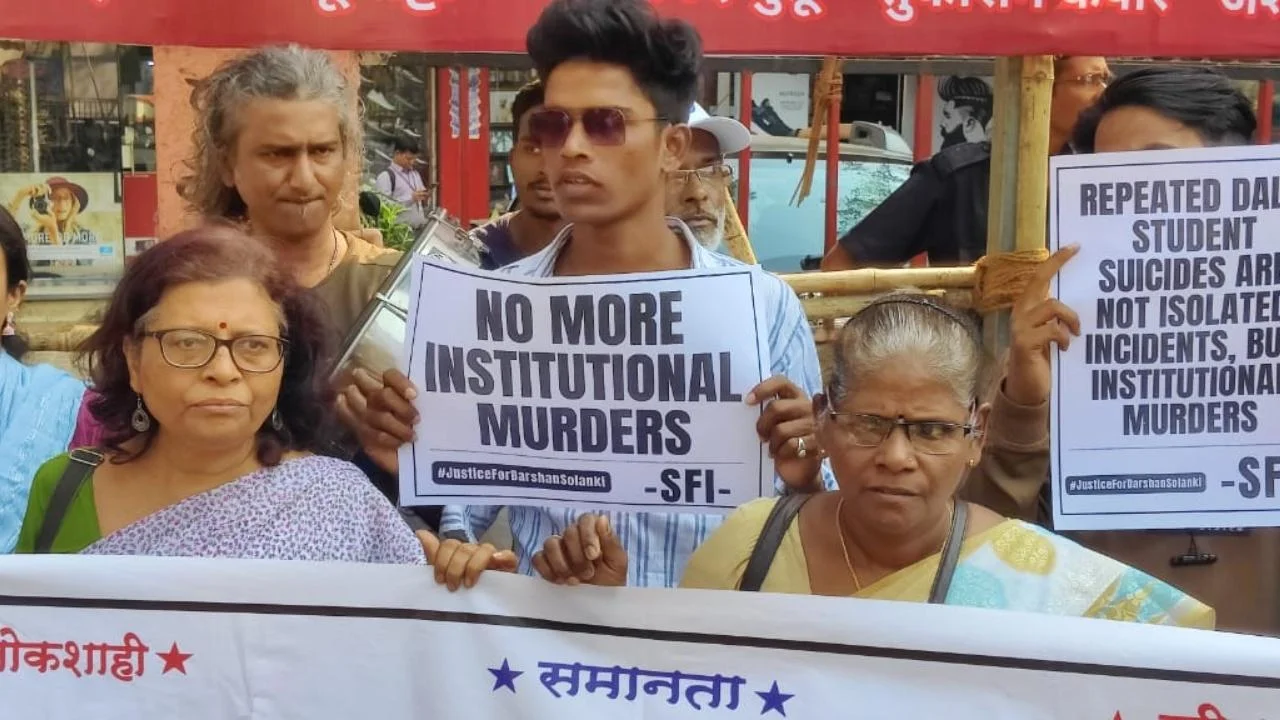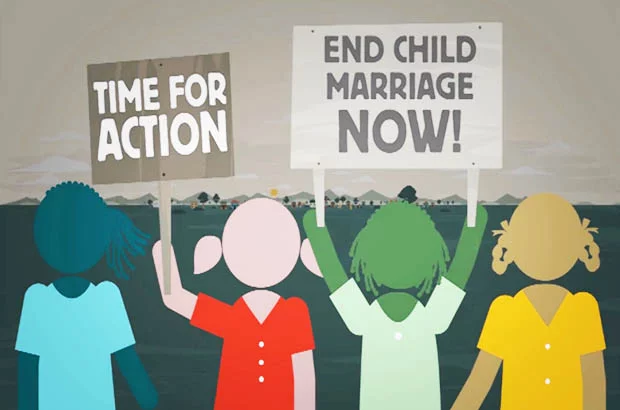Posted by Pooja Jain
“After the end of a session when we were distributing refreshments to young people, a teenage boy came up to us and said that he would not accept refreshments from us if we offered the refreshments to the girls first.”
This is one of the many instances of problematic behaviours that the young jagriks (Jaagruk Nagriks) from Uttar Pradesh witness in their on-ground journey. Priyanshi (21) and Avanish (19), are pursuing graduation from Lucknow and have been involved with the Bewajah Samiti for almost a year now. Their #BeAJagrik journey as a part of the UP Collective Jabardast Jagrik Program, has brought them into contact with people from Hulli Khera, a Dalit village in Lucknow.
“The first time we conducted a session with them, the women were comparatively more comfortable with Priyanshi than they were with me. They were appalled that I, a young man, dared to speak so brazenly about menstruation in a group of older women,” said Avanish.
Also read: The Crumbling Healthcare Infrastructure And Access To Abortion In India
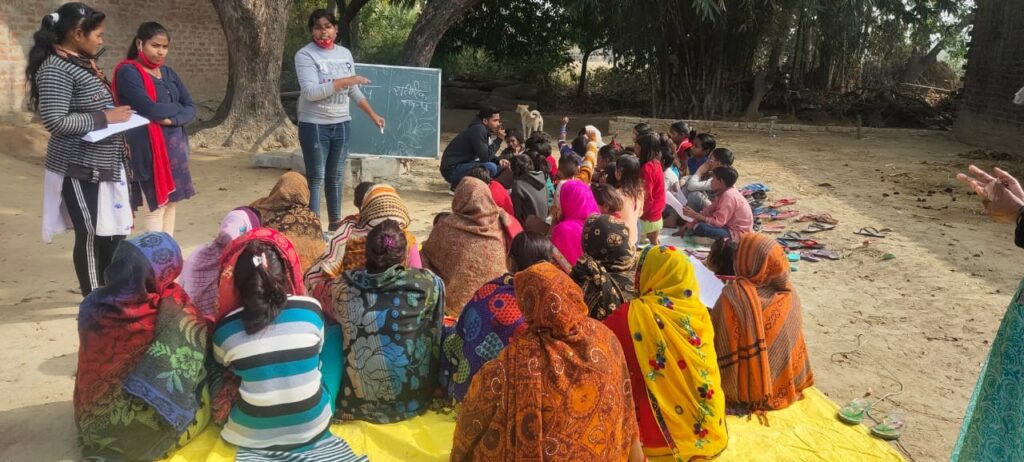
Women in this community (as elsewhere) believe that menstruation is something that shouldn’t be talked about in front of or with men. Even when it comes to talking about menstruation amongst themselves, women barely dare to raise their voices above a whisper.
Women in this community (as elsewhere) believe that menstruation is something that shouldn’t be talked about in front of or with men. Even when it comes to talking about menstruation amongst themselves, women barely dare to raise their voices above a whisper.
Priyanshi shares, “A woman told me that her 12-year-old daughter got her periods for some time and then it stopped. Even when their daughter was going through what could potentially be a serious health condition, the mother did not share this information with her husband. When she told me about it, it was in a hush-hush manner because she didn’t want her husband to overhear us.”
Such behaviour patterns associated with menstruation ultimately have an impact on the menstrual habits of the women. According to the National Family Health Survey 2015-16, only 39.9% of the rural women surveyed in Uttar Pradesh, aged 19-24, use hygienic menstrual products — an unsatisfying number that has dropped further during the pandemic. In a study conducted by the Population Foundation of India in May 2020 in Bihar, Rajasthan and Uttar Pradesh, more than half the women reported an unmet need for sanitary pads during the nationwide lockdown.
Also read: Period Positivity: What More Can We Do As Menstrual Health Educators?
Priyanshi and Avanish have co-created their social action project on Sexual and Reproductive Health & Rights (SRHR), facilitated by Bewajah and ComMutiny and supported by UNFPA and REC Limited. They are engaging young people and older members of the community in sessions on SRHR issues. Their sessions are aimed at breaking the myths related to it and promoting a safe space where all of the community members can share their concerns regarding the same.
During their time on-ground, the jagriks realised that men, already reaping the benefits of patriarchy, found it futile to talk about these issues. Women and young girls, on the other hand, shared such stories, that the jagriks felt that the work was not just required in the domain of sexual education, but also on girls’ education and domestic violence, among other issues.
When asked how does he stay hopeful in such challenging scenarios, Avanish said, “The women who were initially reluctant to talk to me, eventually started actively participating in the sessions by asking me questions.”
The community women asked the jagriks, “We understand what you are saying, but when the session ends we have to go back to a home, where at the end of the day our drunk husbands beat us. And all we can do is serve them food with a smile on our faces. What is the point of us trying to change when it is our husbands who won’t stop beating us?”
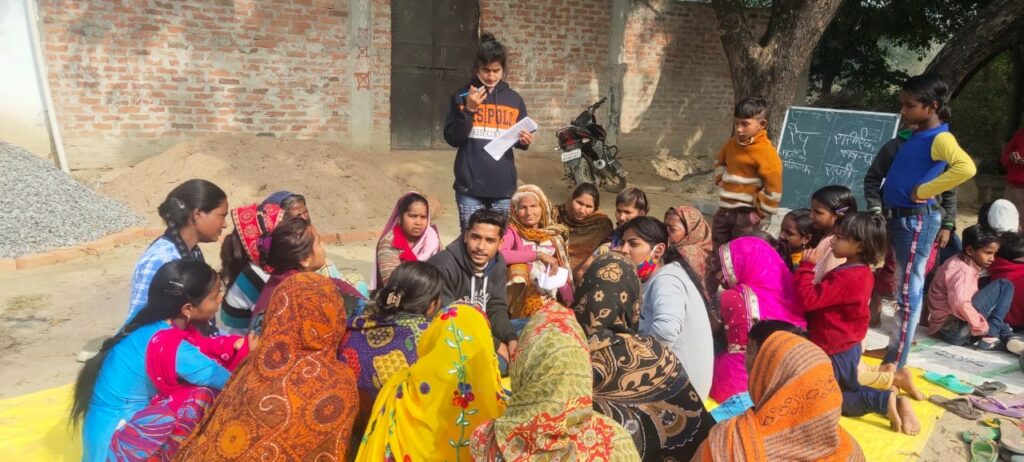
Cases like these largely go unreported as they have been accepted as the normal household experience for a wife. One can then imagine how grossly inadequate the statistics must be even when The National Commission for Women reports that it received a staggering 23,722 complaints of crimes committed against women nationwide in 2020. Given that 11,872 reports (more than half of the total) were from Uttar Pradesh alone, and taking into account the fact that women find it difficult to accept their experience as domestic violence, it is horrifying to fathom how many women living in Uttar Pradesh actually fall victim to gender-based violence, whether reported or otherwise.
The young girls from the community shared their concerns as well, which highlighted socially accepted, but problematic behavioral problems that have drastic consequences when they go unchallenged. “We understand that we are equal to boys, but what do we do when it is only our brothers who are fed apples by our mothers and not us? What do we do when boys and men harass us and pass lewd comments when we are on our way to school or just walking on the road? What can we do in situations like these?”
Bringing social change is a slow, on-going process and issues like these never have a quick fix solution. When young people like Priyanshi and Avanish, and 196 other Jagriks of the Jabardast Jagrik programme, exercise their youth duties and rights, it sets off a chain reaction that brings positive behavioural change in the society. And it is only through behavioural change that we can disrupt the systems of oppression and create a society that treats its members with equal respect and dignity, irrespective of their gender.
All images as provided by the author.
About the author(s)
ComMutiny stands for the first 'mutiny' within as a young person that comes from working in communities that are ‘different' from oneself. It is symbolic of the fact, the social and systemic transformation cannot happen without personal transformation, which is best facilitated by continuous exploration, reflection, and navigating self and social challenges in relation to the real world. ComMutiny - The Youth Collective is working towards building vibrant eco-systems and youth-centric spaces which we call the 5th Space.
